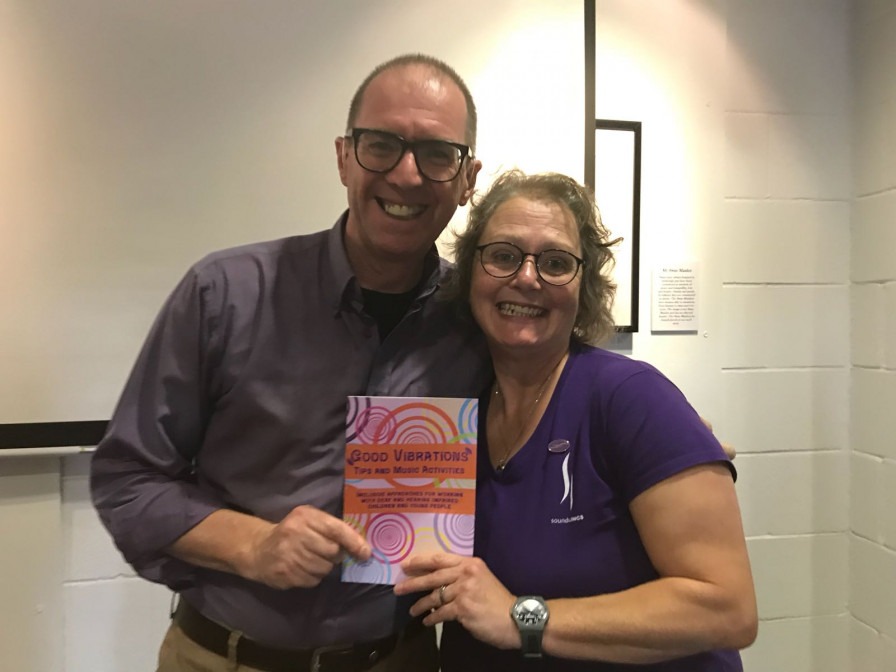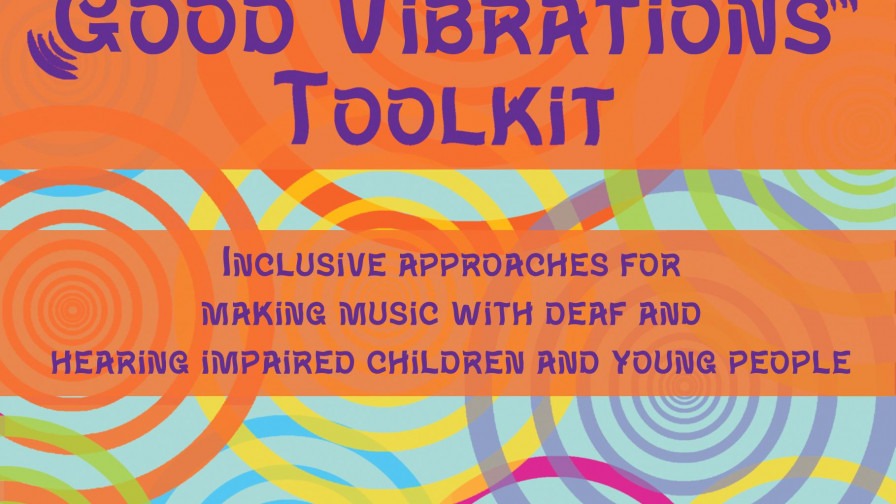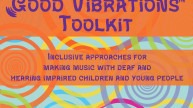Good Vibrations: A New Music Resource for Deaf and Hearing Impaired Children and Young People

The soundLINCS team are thrilled to launch the Good Vibrations toolkit announced by Paul Whittaker at our annual conference earlier this month.
Congratulations to soundLINCS on creating Good Vibrations. As a deaf musician with over 30 years experience of teaching and promoting the topic, I know there is a need for a guide explaining why music is important for deaf people, and that helps you find out more. It should be used nationally to encourage making music with deaf people and I am delighted to recommend it.”, Dr Paul Whittaker OBE, founder of Music and the Deaf.
Statistically 1 in 8 young people are said to either have hearing impairments or are deaf. The Good Vibrations Toolkit aims to support and enable inclusive music practices with deaf and hearing impaired children and young people.
The Good Vibrations project was part of soundLINCS FundC, a National Foundation for Youth Music Funded programme.
The project was developed in partnership with Leicester-shire Schools Music Service and Leicester-shire Hearing Impaired Service with support from Bishop Grosseteste University, Lincoln.
The Hearing Impaired service shared with us their most frequently asked question; ‘Why do music with the Deaf and Hearing impaired?’ Our immediate reaction was ‘Why wouldn’t you do music with the Deaf and Hearing Impaired?’
We then sought to find out what is needed to support, music services, music leaders, teachers, parents and carers to deliver music activities inclusively with deaf and hearing impaired children and young people.
We found a wealth of high quality and in-depth research into the subject of deafness and music-making. However, our further research with the sector indicated that there was a barrier of accessibility to this information for the people delivering music. First of all, there was limited knowledge of where to look to access the information. Secondly, the process of finding and reading the research required a time commitment which teachers and parents did not often have. Therefore, the people wishing to learn the basics of music with the deaf and hearing impaired had a difficult and lengthy journey to take and one which wasn’t often travelled.
We identified that what was needed was a portal, a gateway, a simple and approachable starting point for any adult on the journey of providing music to a deaf and hearing impaired young person. The toolkit aims to do this for any person wishing to begin their journey. For example, a teacher or music leader who has a new young person with hearing impairments within their group may begin to understand the practical ways of support. They might also use the information as a case for support to access further resources. For whichever stage of the music delivery, the toolkit is an accessible and approachable starting point to begin striving for a musically inclusive practice.
The toolkit is fun, attractive, memorable and quirky with the booklet designed with colour and practical surprises. The toolkit can be a quick read for immediate inspiration or a longer read for deeper understanding for whichever direction, interest or depth the reader may need.
People seeking more information are signposted in the toolkit to relevant resources to help build further knowledge and support including research, literature reviews, case studies and articles from experts in the field such as Music and the Deaf, National Deaf Children’s Society and the Ear Foundation.
The toolkit promotes an understanding of how people who are deaf and hearing impaired can experience music. We hope people discover an accessible and inspiring experience using the Good Vibrations Toolkit whether you are a Music Leader, music professional, teacher, parent or carer with the interest to deliver music activities inclusively with deaf and hearing impaired children and young people.
We were so delighted to have support and comments from Dr Paul Whittaker OBE and also Dame Evelyn Glennie who has embraced the toolkit and said, “This is such an excellent toolkit, hugely helpful, and will be a great resource”. Dame Evelyn Glennie, the world’s premiere solo percussionist, composer and speaker, profoundly deaf since the age of 12.
Anyone can access the Good Vibrations toolkit booklet. Printed copies can be purchased at a cost of £1 each plus P&P, please do contact us if you would like one or download the toolkit on the soundLINCS website for free at www.soundlincs.org/resources
For further inspiration we recommend many other toolkits and resources which can be found on the soundLINCS website.
More new and exciting soundLINCS music resources are coming soon so watch this space!



